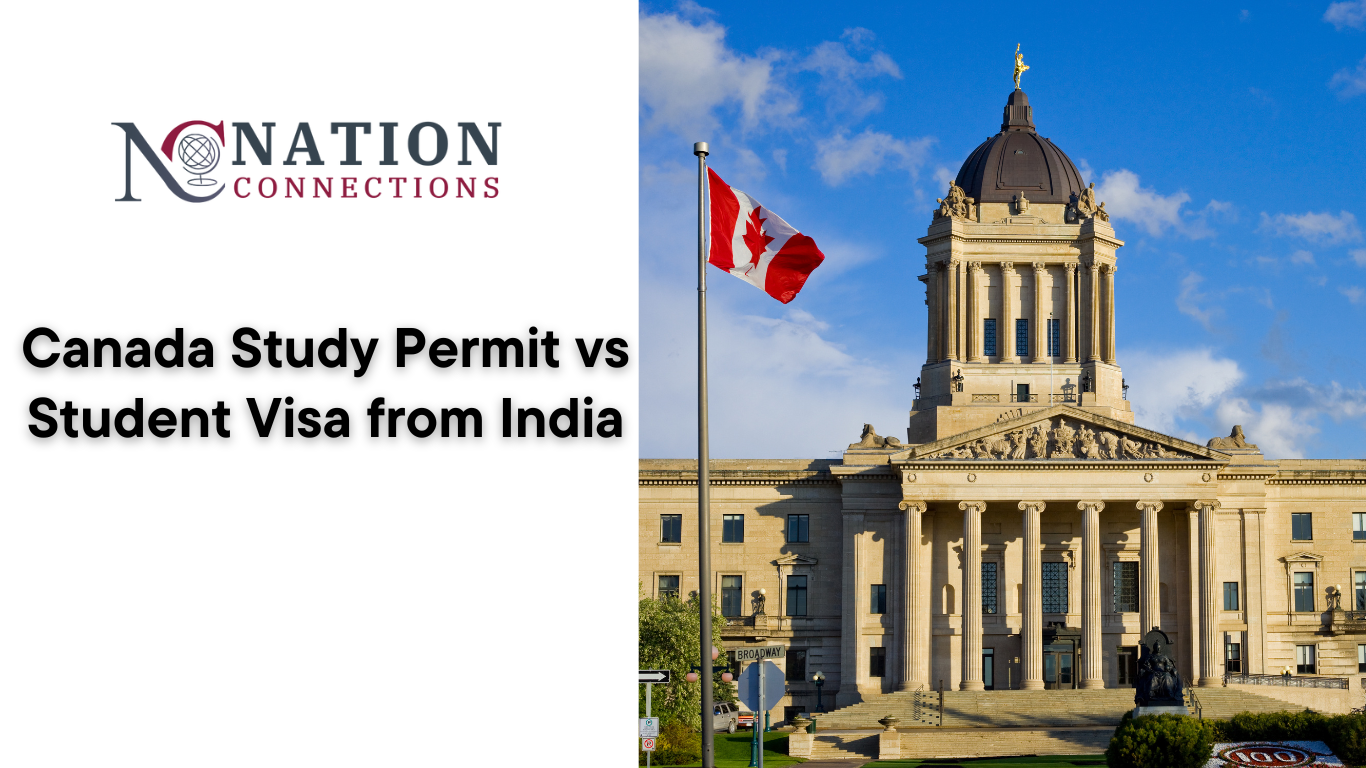
Embarking on an educational journey to Canada is a dream for many Indian students. However, understanding the nuances between a study permit and a student visa is crucial to ensure a smooth application process and compliance with Canadian immigration laws. This guide delves deep into the distinctions, application procedures, and recent policy changes affecting Indian students aspiring to study in Canada.
A study permit is an official document issued by Immigration, Refugees and Citizenship Canada (IRCC) that allows foreign nationals to study at designated learning institutions (DLIs) in Canada. It’s essential to note that a study permit is not a visa and doesn’t grant entry into Canada.
While Canada doesn’t issue a “student visa” per se, the term often refers to the Temporary Resident Visa (TRV) or Electronic Travel Authorization (eTA) that allows entry into Canada. In essence, to study in Canada, Indian students typically require both a study permit and a TRV or eTA.
| Aspect | Study Permit | Student Visa (TRV/eTA) |
|---|---|---|
| Purpose | Allows studying at a DLI in Canada | Grants entry into Canada |
| Issued By | Immigration, Refugees and Citizenship Canada (IRCC) | Canadian Embassy or Consulate |
| Validity | Duration of the study program plus 90 days | Typically up to 6 months or as specified |
| Requirement for Entry | Not sufficient alone for entry | Required for entry into Canada |
| Work Authorization | May allow limited work during studies | Does not grant work rights |
Secure admission from a Designated Learning Institution (DLI) in Canada.
Valid passport
Proof of financial support
Passport-sized photographs
Immigration Medical Examination (IME) results
Statement of Purpose (SOP)
English language proficiency test results (e.g., IELTS)
Submit an online application through the IRCC website or via a Visa Application Centre (VAC).
If required, apply for a Temporary Resident Visa or Electronic Travel Authorization to gain entry into Canada.
In recent times, Canada has implemented stricter visa requirements, leading to a notable 31% decline in the number of student permits issued to Indian nationals during the first quarter of 2025. These changes are part of a broader reevaluation of Canada’s immigration and international student policies.
International students in Canada are permitted to work off-campus for up to 24 hours per week during regular academic sessions and full-time during scheduled breaks.
Upon graduation, students may be eligible for a Post-Graduation Work Permit, allowing them to work in Canada for up to three years. This experience can be a stepping stone towards permanent residency.
What is the main difference between a study permit and a student visa in Canada?
A study permit allows you to study at a designated institution in Canada, while a student visa (TRV or eTA) permits entry into Canada.
Can I work while studying in Canada?
Yes, international students can work up to 24 hours per week during academic sessions and full-time during breaks.
Do I need both a study permit and a student visa?
Yes, Indian students typically require both to study in Canada.
How long does it take to process a study permit application?
Processing times can vary, but it’s advisable to apply at least three months before your intended start date.
What are the financial requirements for a study permit?
You must demonstrate sufficient funds to cover tuition fees, living expenses, and return transportation.
Has Canada reduced the number of study permits for Indian students?
Yes, there has been a 31% reduction in study permits issued to Indian students in early 2025.
Understanding the distinctions between a study permit and a student visa is vital for Indian students aspiring to study in Canada. Staying informed about policy changes and ensuring compliance with all requirements will pave the way for a successful educational journey in Canada.



